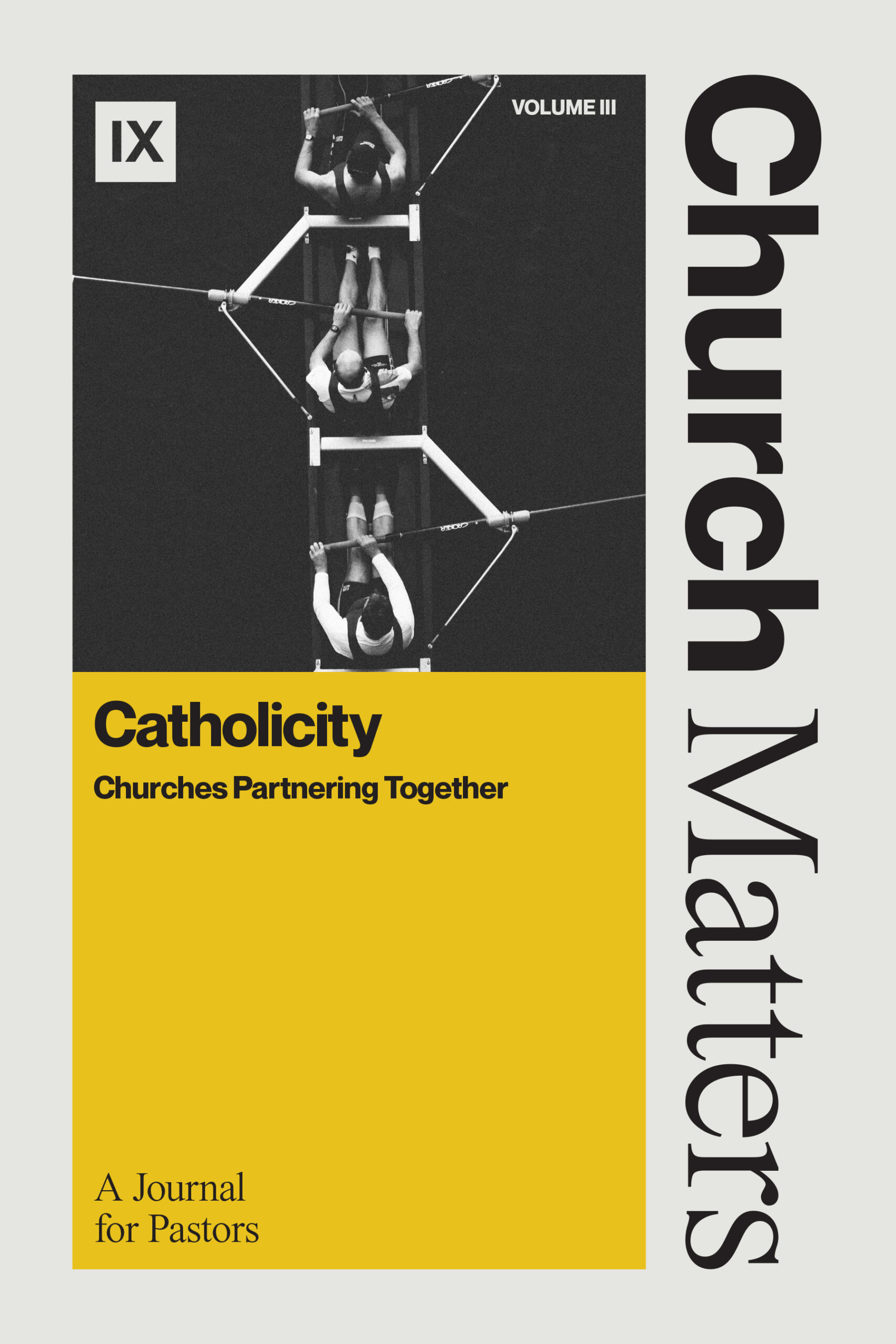How Catholicity Promotes Church-Centered Missions
The disagreements Christians share over practices like baptism seem trivial when compared to the need for missionaries to go and make disciples around the world. Billions of people have never heard the gospel. Shouldn’t Presbyterians, Baptists, and Anglicans lay aside their distinctives, get more catholic, and plant churches together? Joining efforts would provide more people, money, and experience. Such cooperation seems like a no-brainer. Right?
As apparent as this solution sounds, dismissing ecclesiology in the name of catholicity is a mistake. Such a trade makes missions harder, not easier.
Let’s say the Presbyterians, Baptists, and Anglicans all show up on the same missionary team. They decide to plant a church. What kind of church is it going to be? For that church to exist, someone on that team (and probably more than one someone) must agree to go against their convictions regarding Jesus’s command to be baptized or who possesses final authority. Furthermore, the lack of open theological discussions will stunt the growth of team members and eventually church members. In other words, by supposedly removing the tension of different convictions from the missionary team, this strategy inadvertently applies the same tension to an entire church. “He said this, but she thinks that.” “I side with her, not him.” Downplaying distinctions, ironically, leads to a quiet disunity inside a church.
Yet what if, instead, we strive to fulfill the demands of catholicity and unity across churches? Suppose, in other words, I support Presbyterians planting Presbyterian churches and Anglicans planting Anglican churches, but then find ways for my Baptist church to cooperate with those Presbyterian and Anglican churches, say, by evangelizing together or planning missionary conferences together? That would allow every member of every church to simultaneously obey the Bible’s commands in matters of church structure while also striving to fulfill the Great Commission together.
In short, for true catholicity to exist and for healthy church planting to take place worldwide, we must rejoice in our gospel unity while still paying attention to those theological convictions that lead us to join different churches. I can be most catholic when I’m most Baptist, cooperating and strategizing with Baptists to plant Baptist churches. And so with Presbyterians and Anglicans. Convictions lead to clarity, and clarity is a friend to catholicity.
So how can pastors encourage their congregations to appreciate ecclesiological distinctives without discarding a spirit of catholicity?
1. PRAY FOR OTHER MISSIONARIES AND CHURCHES
Pastor, pray for the missionaries sent out by other congregations in your city. Consider giving to their ministries when your church looks for cross-cultural opportunities.
Missionary, pray for missionaries from different denominations and other agencies in the region where you work. Teach the members in your church—especially the new believers—to celebrate the Lord’s faithfulness in and through other congregations in the surrounding area and around the world. Encourage catholicity from their early years of following Jesus.
2. GIVE TO OTHERS
In 1792, the Baptist Missionary Society (BMS) was formed in Kettering, England, by fourteen men from fourteen different locations in the country. This localized missionary society would go on to send out many missionaries, including William Carey. In the early days of the BMS, most churches supported missionaries who didn’t come from their organization.
Similarly, I’ve recently been encouraged by a group of churches in Charlotte cooperating to support the ministry of a church in Bangkok that’s pastored by missionaries from Louisville, KY, and Washington, D.C. Congregations should be most generous to missionaries sent out from their own membership. But they can still be generous to missionaries from other congregations, too.
We should seek to be like Gaius in our support for missionaries from other congregations. John said of him:
Beloved, it is a faithful thing you do in all your efforts for these brothers, strangers as they are, who testified to your love before the church. You will do well to send them on their journey in a manner worthy of God. For they have gone out for the sake of the name, accepting nothing from the Gentiles. Therefore, we ought to support people like these, that we may be fellow workers for the truth. (3 John 5–8)
3. CELEBRATE OTHERS
Take the opportunity to read biographies about American Baptists, Scottish Presbyterians, English Anglicans, and the Moravians. Teach your children about their great sacrifices. Openly celebrate the faithful mission efforts of missionaries when they return home.
Model catholicity by taking the opportunity to meet and encourage missionaries from other local churches, denominations, and agencies as you visit your own missionaries serving overseas.
4. COOPERATE WITH OTHERS
Territorialism easily creeps in between different missionary teams and even organizations. Ironically, territorialism can even lead missionaries to miss out on the opportunity to partner with local churches in closer proximity to their target language group or location. While some contexts (like global cities with sizeable populations) can sustain multiple teams from multiple agencies with different ecclesiological convictions, other language groups and locations are so remote and small that multiple teams will be a hindrance.
With limited personnel and resources, we should rejoice when the gospel is proclaimed and a church is planted amongst an unreached language group, regardless of which local church and agency sent those missionaries. I’m regularly encouraged when I hear stories of how this spirit of cooperation plays out.
Still, it remains true that cooperation depends on like-mindedness. More agreement allows for more cooperation. For an example of what this looks like, consider a translation team versus a church planting team. For the former, ecclesiology may be less important; for the latter, it’s very important. Similarly, missionaries with different ecclesiological convictions can still cooperate on evangelistic efforts throughout global cities.
Ultimately, catholicity in missions allows us to be gospel-centered and church-centered at the same time. May the Lord bless all our labors.
Related Multimedia











